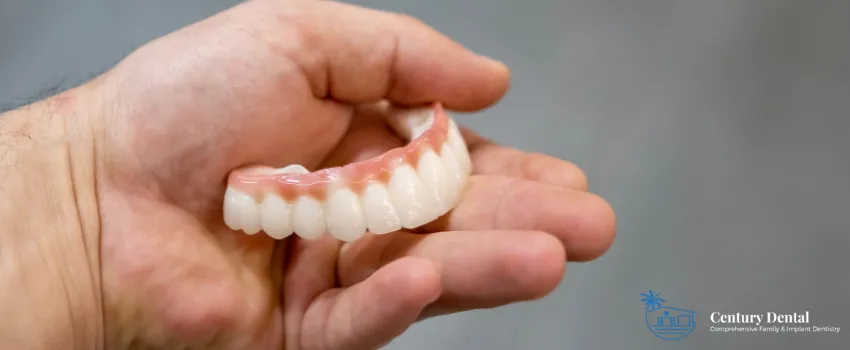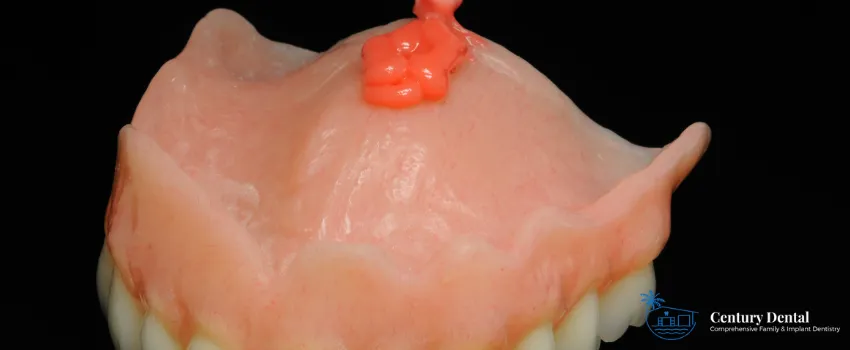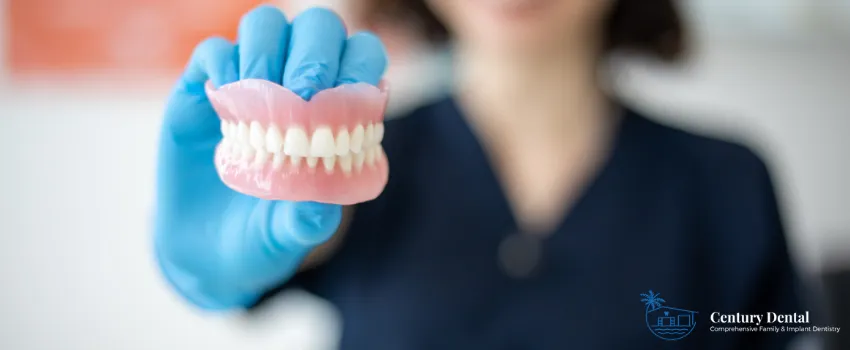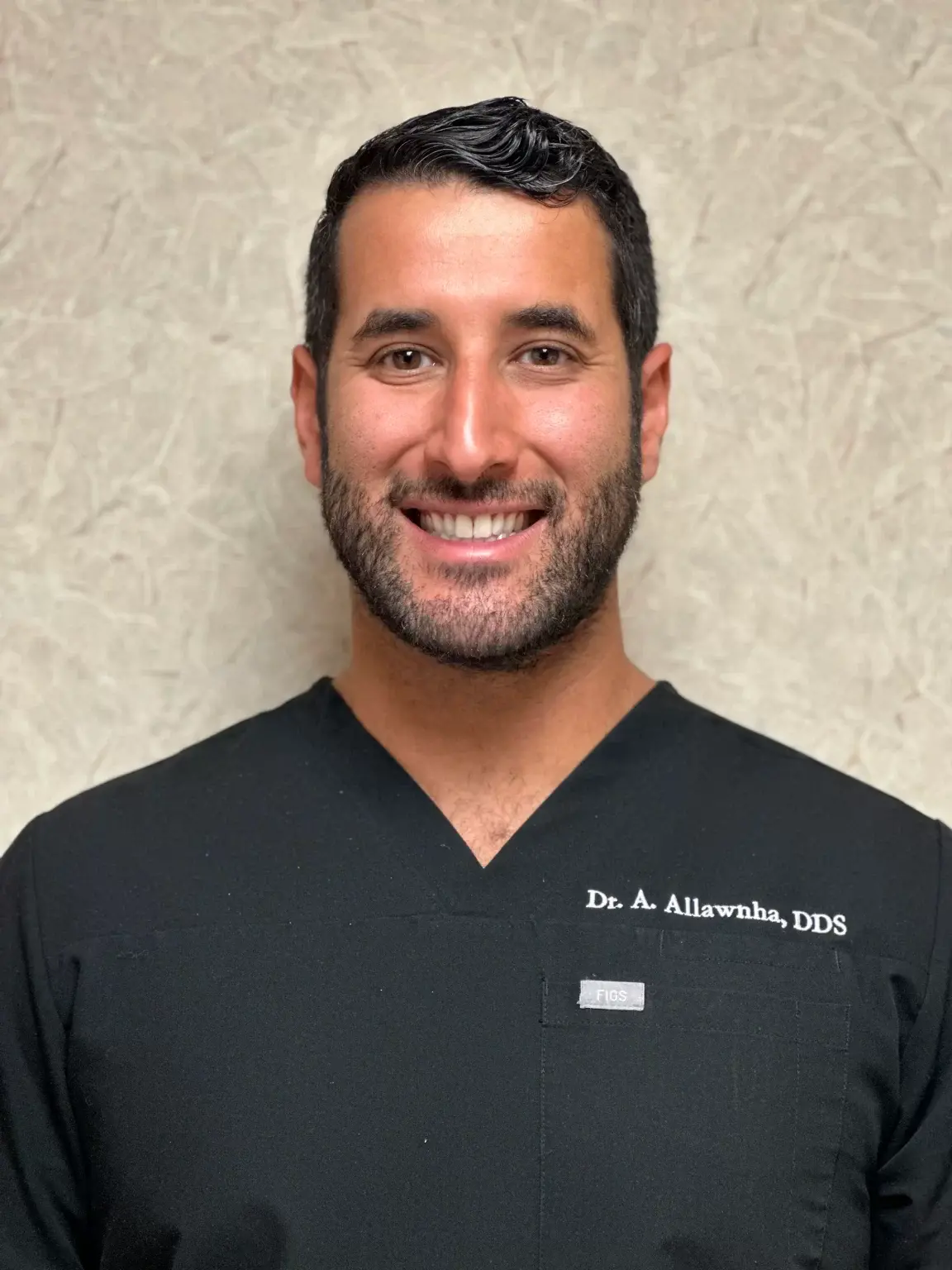Dentures are movable prosthetic devices worn in the mouth to replace lost teeth and improve oral health. For those who have lost teeth due to trauma, decay, or other causes, they may be a fantastic option. Your grin may look better with dentures, increasing your self-assurance and social comfort.
For people with dentures, it is imperative to care for them properly to keep them in good shape and guarantee they survive for many years. This blog tackles what to know about dentures so you can make the most of your investment.
Why Do People Need Dentures?
Dentures treat people who have lost some or all of their natural teeth. Dentures may be necessary for several reasons, including age-related tooth loss, trauma, or dental illness. Whatever the cause, losing teeth can significantly reduce a person’s quality of life by impairing their capacity for confident eating, speaking, and smiling.
If you’re wondering when are dentures needed, here are some signs to look for:
- You have frequent and severe tooth pain
- You have tender, swollen, red, or bleeding gums
- You find it difficult to chew hard and chewy food
- You have lost one or more teeth
- You are too embarrassed to smile
- You don’t visit your dentist twice a year
You can replace lost teeth with a comfortable and practical alternative with dentures while restoring the mouth’s appearance and functionality. Dentures are now more comfortable and natural-looking than ever, thanks to developments in contemporary dentistry. As a result, they have become a popular option for people wishing to enhance their oral health and quality of life.
How Are Dentures Held in Place?
Different types of dentures require different adhesives. For example, a metal or plastic framework clips artificial teeth onto the natural teeth. On the other hand, full dentures can be suctioned or held in place with adhesives.
Dental implants can be used as an anchor for partial and full dentures, providing another option. The denture is attached to implants, tiny titanium posts surgically inserted into the jawbone. You can also consult your dentist if you have a preferred method.
Things People With Dentures Should Know
Properly taking care of dentures ensures they last for years. Here’s what you need to know about them so you can make them last:
1. Use the right denture cleaner.
Using just any denture cleaner available may cause damage to your false teeth. You must carefully read the labels because some cleaners only suit specific dentures. If you need help deciding which cleanser to use, consult your dentist. It is always preferable to ask questions than to risk ruining your dentures and incurring pricey repairs.
2. Brush them like you would real teeth.
They may be false teeth, but that doesn’t mean you shouldn’t brush them. Like regular teeth, you should brush them twice a day. It’s also important to use a toothbrush recommended by your dentist.
Caring for dentures is essential because food particles can get caught between them, which may cause bacteria buildup and bad breath. Aside from toothpaste, you can use baking soda since it can help keep them white and clean without risking damage.
3. Don’t attempt DIY repairs to the damage.
Instead of attempting to repair broken dentures alone, bring them to your dentist. Trying to solve the situation alone may result in more harm than good. Dentists understand how to address any problems with fake teeth correctly, and attempting to fix them may result in costly repairs or even replacement.
4. Avoid certain foods.
To avoid damage or discomfort, you must be attentive to what you eat if you wear dentures. Sticky and hard foods, including caramel, chewing gum, and hard candies, should be avoided since they can cause dentures to move or break.
Furthermore, foods that require a lot of chewing, such as tough meats or hard vegetables, can cause discomfort or loosen your dentures. It is also a good idea to avoid foods and drinks that are too hot or cold because they can impair the fit of your dentures.
Some foods and beverages can also discolor both natural teeth and dentures. Examples are coffee, tea, red wine, fruit, and some sauces. To reduce the danger of staining your dentures, restrict your consumption of these products or rinse your mouth with water after eating them.
5. Set a nightly denture care routine.
Clean your dentures before bed to avoid bacteria accumulation and illnesses. Soak them in clean water to keep them lubricated. Wearing them for extended periods may result in receding gums and bad breath.
6. Being uncomfortable at first is normal.
Feeling discomfort during the first few days of wearing dentures is normal. Consult your dentist if the pain persists after a few weeks. Remember that the benefits of wearing dentures exceed the inconvenience.
If you can’t bear dental sores, you can also try to relieve the pain using the following home remedies:
- Topical anesthetic
- Saltwater
- Pain relief medication
You can also remove your dentures overnight and let them soak in water to allow your gums to breathe.
7. It takes time to get used to them.
Getting dentures can be both exhilarating and intimidating. It will take some getting accustomed to it because they will feel strange in your mouth.
Fortunately, you will grow accustomed to them, and the discomfort will fade. Remember to follow your orthodontist’s advice, practice proper oral hygiene, and be patient. The eventual outcome of a beautiful, straight smile will be well worth the early adjustment time.
The Bottom Line
Dentures can significantly improve the quality of life for people who have lost some or all of their teeth. However, people with dentures must correctly care for them so that they can last longer.
While there may be some discomfort and a period of adjustment, the benefits of having functional teeth and a restored smile outweigh the risks. If you have any concerns regarding your dentures, talk with your dentist immediately to ensure they last as long as possible.
Get comfortable and functional dentures from Century Dental.
If you’re considering getting dentures or need help with your existing ones, Century Dental is here to provide expert care and guidance. We have a skilled dentist in South Pasadena, FL, who can help you understand what to know about dentures. They can teach you about the different types available to the best ways to care for them.
Don’t let dental issues affect your quality of life. Schedule an appointment today, and let us help you achieve a healthy, confident smile.







